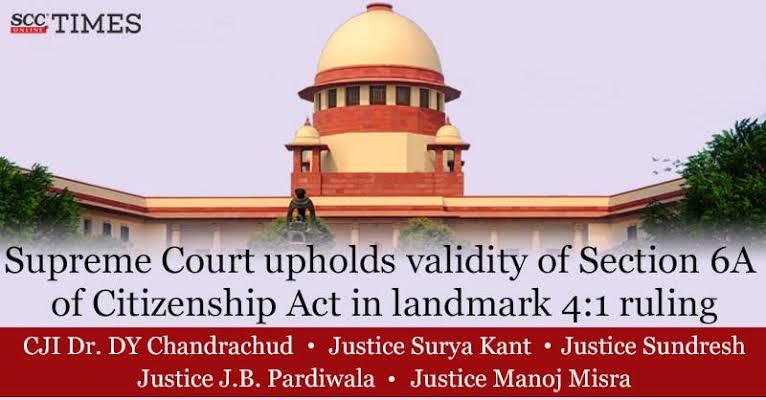Section 6A Of the Citizenship Act: Why it Fails Assam
Why in the news?
- SC Ruling: A Constitution Bench upheld the constitutional validity of Section 6A of the Citizenship Act in a 4:1 decision in October 2024.
- Significant Provision: Allows migrants from East Pakistan (now Bangladesh) settling in Assam before March 25, 1971, to gain Indian citizenship.
- Controversy: The ruling raises concerns about constitutional violations and its impact on Assam’s cultural identity.
Gaps in Reasoning
- Article 29 Violation: The Court failed to address the cultural displacement caused by unchecked migration.
- Temporal Flaws: Section 6A’s lack of temporal limitation allows indefinite citizenship claims, making it outdated and ineffective.
- Demographic Shifts: Research shows significant increases in Bengali-speaking populations, diluting Assamese linguistic identity.
Faulty Mechanism and Impacts
- Flawed System: Burden of identifying migrants lies on the state, leading to inefficiencies.
- Tribunal Backlogs: Foreigners’ tribunals face overwhelming caseloads, resulting in delays and confusion.
- Missed Objectives: The law perpetuates arbitrary policies, failing to safeguard Assam’s indigenous identity.
Background of Section 6A
- Assam Accord: Section 6A was introduced in 1985 as part of the Assam Accord, addressing issues from large-scale migration.
- Citizenship Cut-Offs:
- Before January 1, 1966: Declared Indian citizens.
- January 1, 1966 – March 25, 1971: Eligible for citizenship after 10 years.
- After March 25, 1971: Declared illegal migrants.
Sources Referred:
PIB, The Hindu, Indian Express, Hindustan Times





